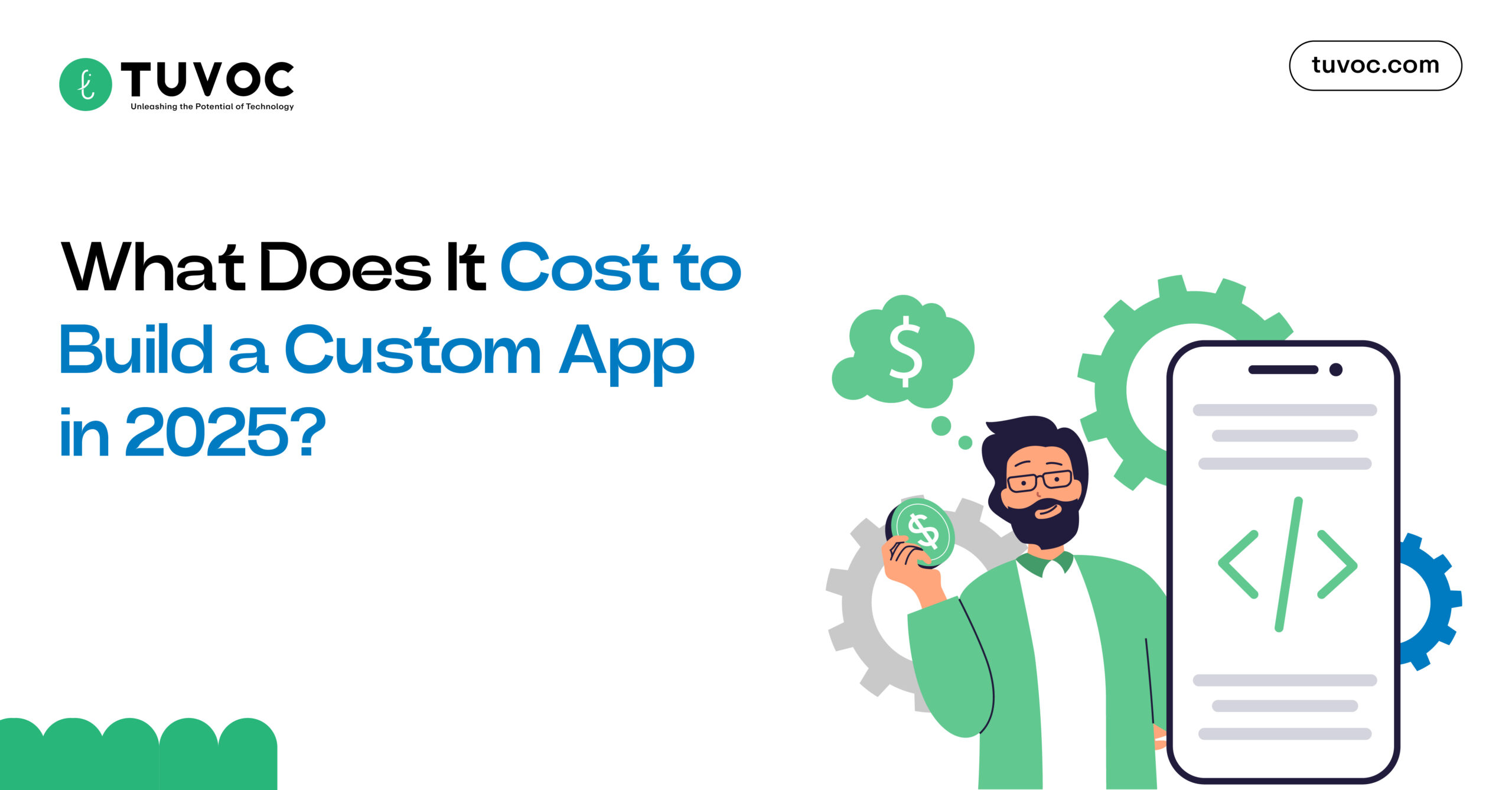How AI is Redefining the Mobile Application Development

The world of mobile application development is changing. This change has been brought upon by Artificial Intelligence (AI) Development. It brings about a positive impact on user experience and streamlines the development process. This blog explains how AI is revolutionizing mobile app development.
1. Improved User Experience:
AI is revolutionizing how users interact with apps. With AI, apps learn from user behavior. This leads to personalized experiences. Streaming services will give you shows you tend to like based on what you have streamed before. Also, shopping apps will remind you about products you can be interested in.
These personalizing features keep the users on. The longer they stay, the chances of their coming back are higher. AI-driven analytics of developers keep them aware of what the users like the most. This insight allows them to improve app features continually.
2. Enhanced App Functionality:
AI can improve the functionality of apps in a ton of ways. Some of the best ones are voice recognition capabilities. Virtual assistants like Siri and Google Assistant fall into this line of AI: they interpret voice commands for apps. This, therefore, increases the accessibility of apps.
Chatbots are another example. It will give an app access to immediate customer support. Users will be able to get the answer to any questions without waiting for a human representative. Users will be satisfied, and the time taken to give them a response will be much reduced.
3. The Simplified Development Process:
It’s not just an experience for users, but also benefits developers. AI software can easily automate boring tasks. For example, specifying the requirement of the user can generate the code using code generation tools. This increases the development process drastically.
AI can further help developers in testing the apps. Automated testing tools can execute tests more efficiently than a human being. They can point out bugs and errors quite quickly. This means that the quality of apps will be better and also the time taken to launch the apps will decrease.
4. Predictive Analytics:
Predictive analytics is another area where AI comes in handy. It lets the developers see the future trends. By analyzing the data of users, AI predicts which will become popular and which won’t. This way, the developers have a lot of time to do their work.
For instance, if an app’s usage increases during some seasons, then the developers can prepare updates beforehand. Thus, the user retention rate can be increased. Knowing the user behavior proves helpful in making decisions with data.
5. Enhanced Security Measures:
Mobile application development does not end without security. The AI system can detect threats in real-time. Machine learning algorithms can search for peculiar patterns. This helps in tracking possible security breaches.
Example: The AI can monitor login attempts. After the detection of a few invalid login attempts, it can give out security responses. This provides a small amount of extra security to the user.
6. Cost Efficiency:
Developing mobile applications with AI integration would eventually save money. By integrating AI into their applications, companies can automate tasks that reduce labor costs through automated features. Such a move allows the developer to pay more attention and be more critical of the application.
Another feature AI presents towards lower errors in an application. The fewer mistakes avoided the fewer bugs to debug. Altogether, the process becomes smoother, and the cost comes down overall, in AI development.
7. Better Data Management:
Data is the backbone of mobile applications. AI aids in the proper handling of vast amounts of data. It can analyze user’s behavior and preferences. All these are very essential for app advancement and functionality.
AI-based tools provide a classification of data and insights. This will make developers understand what will work and what will not. With better data management, apps undergo continuous evolution to cater to the needs of users.
8. App Store Optimization:
AI assists in app store optimization. ASO simply refers to the visibility of an app. AI analyzes the keywords, user reviews, and performance of an app. This helps developers optimize listings.
App developers can see which specific keywords will fetch the maximum number of downloads. A developer can also look out for user feedback to make necessary changes. Optimization through these ways can grow more downloads and also engagement with users.
9. IoT Integration:
The Internet of Things (IoT) is growing rapidly. AI opens up mobile applications to connect with the connected devices of IoT without any problem. These technologies enable users to control them from their mobile.
For example, Smart home apps control lighting, security, and temperature through AI technology. It provides simple tasks in daily life for mobile users. When the IoT is developed further; further development will be done in mobile-related apps through AI technology.
10. Future of Mobile App Development:
The future of mobile app development looks promising with AI. According to Gartner, 37% of organizations have integrated AI into their systems, and this figure is projected to increase by 270% in the upcoming years. As technology advances, we can expect even more innovative solutions.
Developers who embrace AI will have a competitive edge, creating more efficient, user-friendly applications. The global mobile artificial intelligence (AI) market is projected to reach $34.56 billion by 2028, growing at a CAGR of 25.12% from its value of $11.27 billion in 2023 (ResearchandMarkets). As AI technology evolves, so will the possibilities for mobile app development.
Top Mobile Apps With AI Features:

Here are some top mobile applications successfully implementing AI:
Google Assistant: Google Assistant uses AI to understand voice commands, manage tasks, control smart home devices, and provide personalized recommendations. Its machine-learning capabilities allow it to adapt to user preferences over time.
Netflix: Netflix employs AI algorithms to analyze viewing patterns, enabling tailored show and movie recommendations. This personalized approach enhances user engagement and satisfaction.
Spotify: Spotify utilizes AI for its music recommendation system, analyzing listening habits to curate personalized playlists like “Discover Weekly.” This makes music discovery easier and more enjoyable.
Snapchat: Snapchat incorporates AI in its image recognition and augmented reality (AR) features. The app identifies faces and applies filters, creating engaging experiences with real-time transformations.
Conclusion:
AI is changing the rules of developing mobile applications in more significant and multifaceted ways. Improving user experience, security, and efficiency appear to be the very big impacts associated with this development. The way forward would be to increase the role of this growing AI through the development of mobile apps.
As one of the best AI app development companies in India, we believe the potential of artificial intelligence in mobile app development in the future would not be possible at Tuvoc Technologies without AI. That’s why we aim to interact with mobile app AI to create new business solutions for businesses to survive in the competitive mobile landscape.
The future promises a lot for mobile applications thanks to AI, and exciting opportunities could be in store if we open ourselves to change. Whether an Android app developer or a Machine learning development company owner, you are bound to find out about the shifting trends regarding AI to ensure you stay updated about this change.
FAQs
AI improves user experience by presenting content based on user behavior. For instance, if a user tends to prefer watching more of a particular show, listening more to a particular music album, or purchasing more of some products, apps can be suggested to users based on the user’s preference, which would keep them stuck and satisfied.
AI saves redundant work, accelerates coding, and maximizes testing. The result would be of good quality, faster launches, and less costly in producing apps.
Some of the more celebrated applications that use AI include Google Assistant, Netflix, Spotify, and Snapchat. Such applications apply AI in voice recognition, personalized recommendation, and image recognition among other features that are added to enhance engagement with the application.






